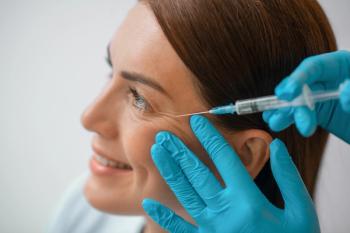
- Uncharted Territory: Aesthetic Authority Vol.1: No.2
- Volume 1
- Issue 2
Avoiding Legal Landmines During COVID-19
In May, we convened a panel of legal experts and respected physicians to discuss the legal landscape facing the private practice during COVID-19, including strategies for minimizing liability risk. Overwhelmingly, the panel agreed on several key points for avoiding legal landmines.
On the broadest level, always think safety first, says Brad Adatto, J.D., Partner, ByrdAdatto,
“I always just go back to safety first: The safety of your team, your staff, the safety of your patients, the safety of your facility and of course the safety of yourself,” he says. “You have to be careful because you don't want to close yourself down because you expose your staff or your facility to COVID-19.”
Which begs the question, what should you be doing to minimize your legal risk?
Prepare for a Lawsuit
According to E. Gaylon McCollough, M.D., F.A.C.S., Gulf Shores, Ala., his approach with every patient from the first point of contact has always been to prepare for a lawsuit.
“The first time that the patient calls your office for consultation, you should begin to prepare the file for a lawsuit,” he says.
And that means documenting everything.
“We put everything in the chart,” concurs Randolph Waldman, M.D., who is Editorial Advisor for Aesthetic Authority and Founder and Director of the annual multi-specialty Global Aesthetics Conference in Miami Beach, Fla.
“If it’s not in the chart, that means you didn’t ask it,” he says.
For surgical patients, in particular, “…you have to address the fact that you talked to them about potential infections after surgery …and that risks have probably gone up just a little bit [with COVID-19], but that you are doing everything you can to mitigate those risks. And I think that they'll appreciate that.”
Alex Thiersch, J.D., Partner, Salveo Capital and CEO, AmSpa, helps to paint a picture of the potential lawsuit opportunities by playing devil’s advocate.
“I'm putting on my sleazy lawyer hat right now thinking about how I would be able to go after somebody,” says Thiersch.
He cites possible scenarios including:
- Failing to follow basic protocols and/or the specific protocols decided on for the practice.
- Failing to perform mandated tests.
- Failing to provide staff with appropriate protective gear.
“That's what a plaintiff's attorney is going to do… they're going to take your protocols, they're going to take the governor's orders, they're going to go through every single step of it and see if you ticked off that box, and if you didn't they're going to say, ‘well that is clear and convincing evidence that you weren't doing what you were supposed to be doing,’” says Thiersch.
Educate and Protect Your Employees
“The risk of exposure as an owner is coming from your employees first,” emphasizes Adatto.
The most important things you can do is to educate and protect your employees, he says. Even the best of protocols will expose you to risk if you don’t follow them to a T.
“A plaintiff's attorney will use that. The government will use that against you. Because as beautiful as the protocol can be written. If you're not following it, it’s actually worthless,” says Adatto.
Staff need to know not only the protocols but also how to implement them, including those for patient visits, patient or staff COVID-19 exposure and facility cleaning.
In terms of protection, every practice is required to provide necessary equipment to keep staff safe.
If you don’t, says Adatto, “Number one, it's going to slow you down. Number two, it is terrible press if you're a medical facility that is not providing the proper equipment. And number three, it's against the law when it comes to OSHA. OSHA will come in and find you and shut you down.”
NEXT: Two Essential Safety Measures During COVID-19
Articles in this issue
over 5 years ago
Healing Power from Bone Marrow Stem Cellsover 5 years ago
Best Practices for Hair Regrowth with PDO Threadsover 5 years ago
Threads Stimulate Hair Regrowthover 5 years ago
Two Essential Safety Measures During COVID-19over 5 years ago
Who Is the Best Thread Injector?over 5 years ago
Threads as ‘Injectables’over 5 years ago
Uncharted Territory: Aesthetic Authority Vol.1: No.2over 5 years ago
‘Here Comes the Sun’Newsletter
Like what you’re reading? Subscribe to Dermatology Times for weekly updates on therapies, innovations, and real-world practice tips.











